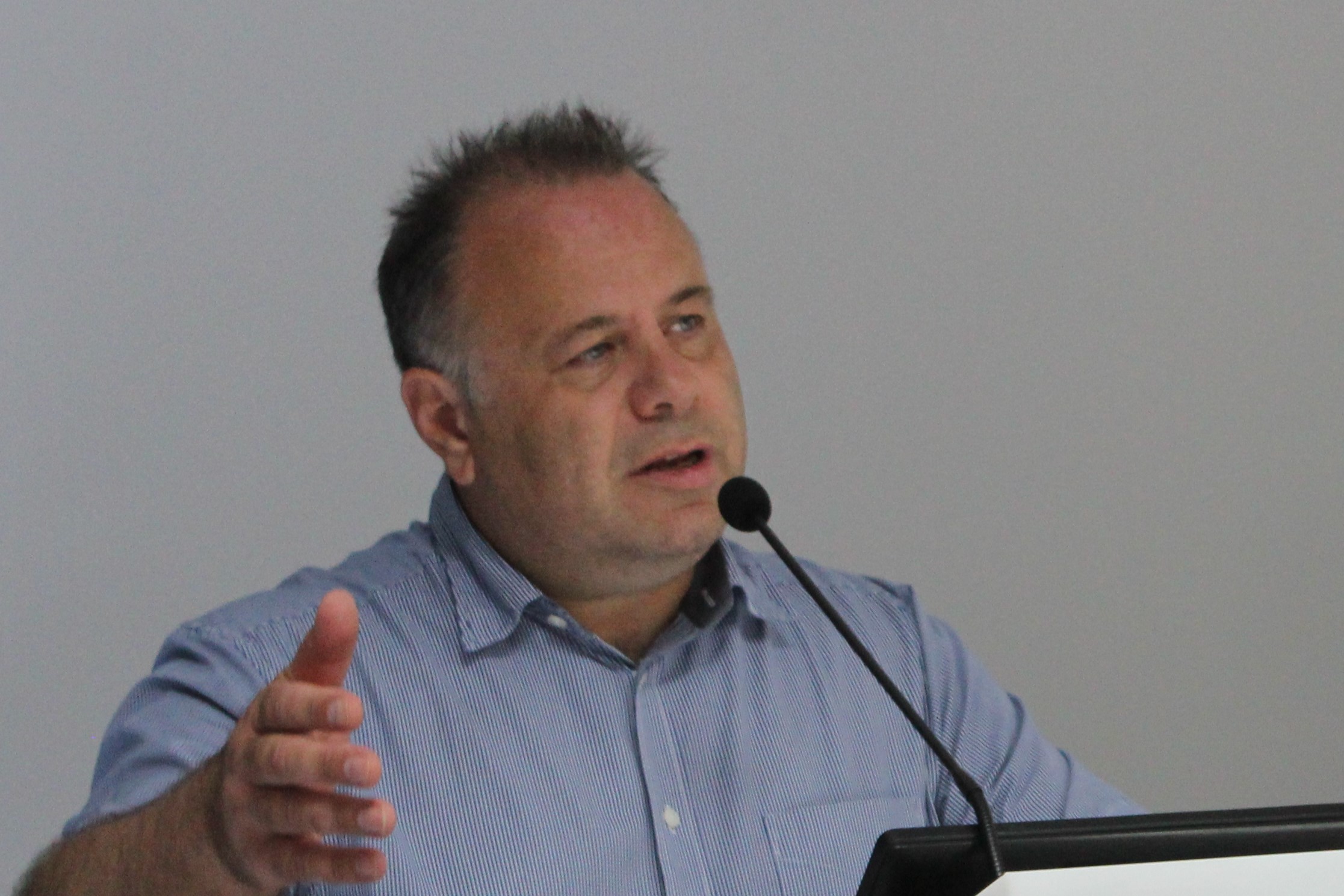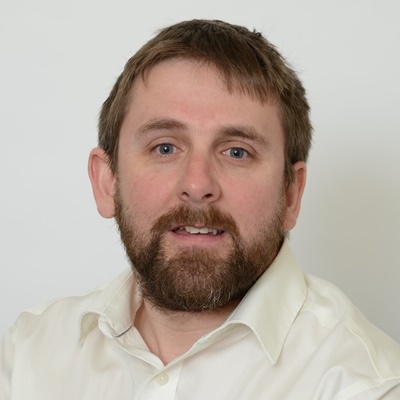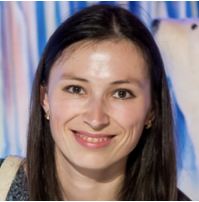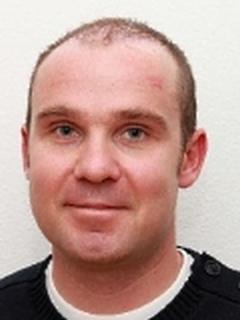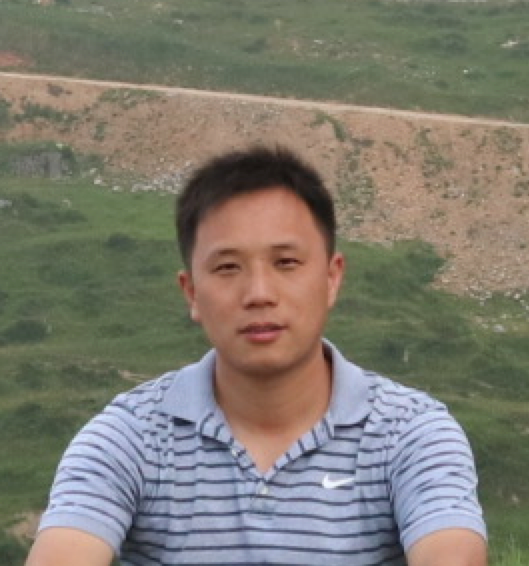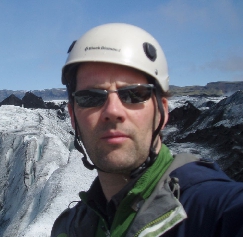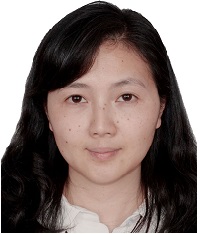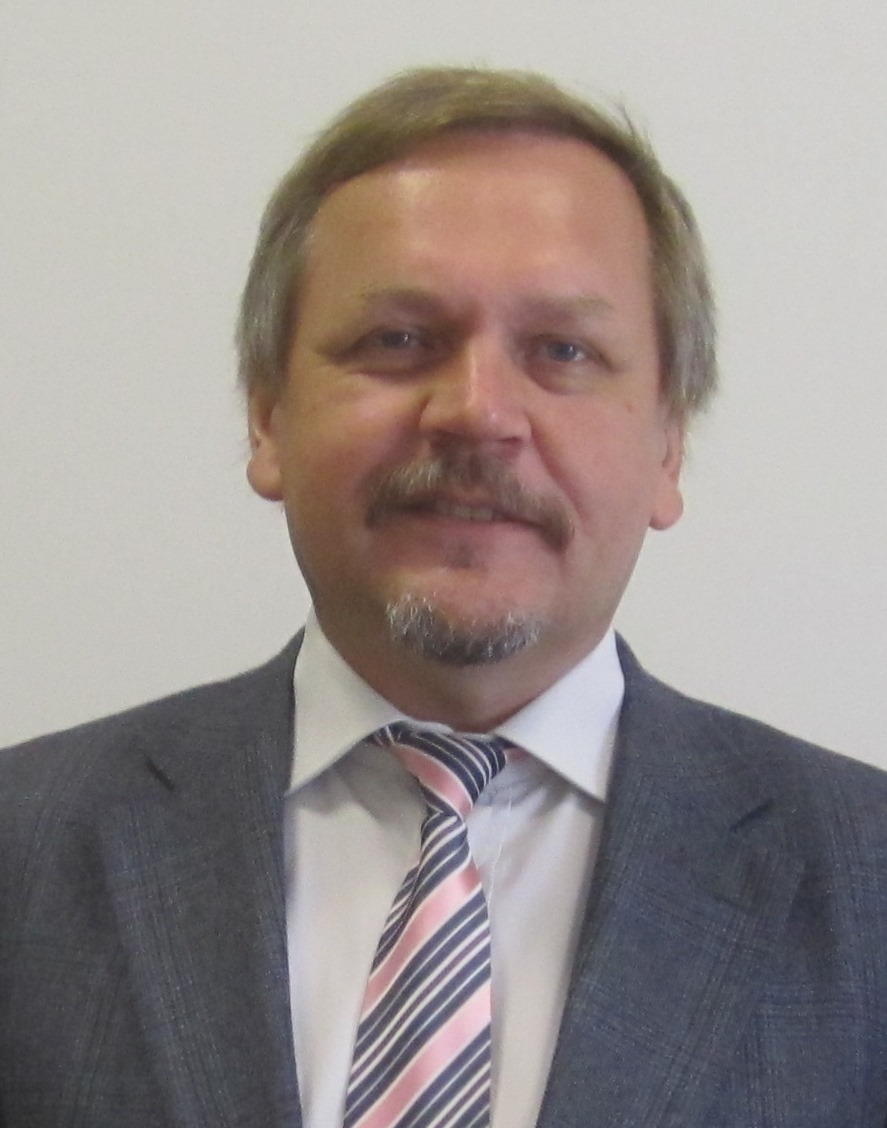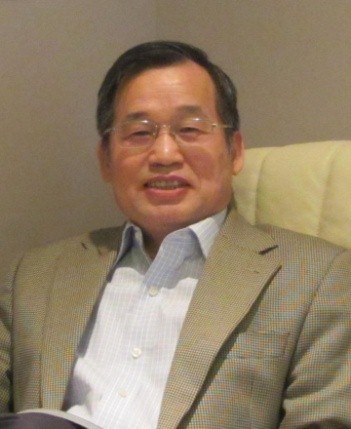.jpg?1771086890)
2nd International Electronic Conference on Remote Sensing
Part of the International Electronic Conference on Remote Sensing series
22 March–5 April 2018
- Go to the Sessions
- Event Details
Welcome from the Chairs
Welcome from the Chair of the 2nd International Electronic Conference on Remote Sensing
22 March to 5 April 2018
It is my great pleasure to welcome you to the 2nd International Electronic Conference on Remote Sensing. ECRS-2 aims to promote and advance the exciting and rapidly changing field of remote sensing and contribute towards outlining the role of earth observation in monitoring the environment for a sustainable future.
During the last decade, we witnessed a remarkable increase in the number of disciplines and activities supported by remote sensing, with Earth Observation data being considered essential to most environmental monitoring activities worldwide. Indeed, remote sensing today is considered critical for addressing key challenges related to climate change, biodiversity loss, land degradation, industrial pollution, natural and anthropogenic hazards (e.g. earthquakes, floods, landslides, fires), water quality and availability, weather forecasting and early warnings, renewable energy, agriculture, forestry and natural ecosystems, coasts and oceans, topographic mapping and, national security among many others. New missions with sensors suitable for a large variety of different applications, progress in computer technology, development of new advanced digital image analysis techniques, improved access to and availability of images (satellite, airborne) andin-situ measurements, as well as the establishment of global initiatives such as the Global Earth Observation System of Systems (GEOSS) are expected to further increase the use of EO data to an even broader array of disciplines.
Hence, it seems that the future of remote sensing lies in providing numerous types of accurate, current, and multi-resolution data and derived geospatial information products readily available for every area of interest.
ECRS-2 covers research in key areas of opportunity and challenge in remote sensing sciences, including:
- New Platforms and Sensors
- Big Data Handling
- New Image Analysis Approaches
- Applications
- Product Validation
- Operational Applications and Services
- Open Source Data, Code, Algorithm
- Posters: In this section, posters can be presented without an accompanying proceedings paper. Posters will be available online on this website during and after the e-conference. However, will not be added to the proceedings of the conference.
Participants in this multidisciplinary conference will be able to examine, explore and critically engage with issues and advances in these and related areas. We hope that this event will facilitate debates on theoretical and applied aspects of remote sensing, which will yield novel ideas to the field.
The 2nd International Electronic Conference on Remote Sensing will be held at www.sciforum.net/conference/ecrs-2, the platform developed by MDPI to organize electronic conferences and discussion groups.
Accepted papers will be published in the proceedings of the conference, and selected papers will be considered for publication in Remote Sensing, which is an open access journal publication of MDPI in the field of remote sensing (https://www.mdpi.com/journal/remotesensing).
We are looking forward to receiving your contributions in this unique event!
Best regards,
Dr. Ioannis Gitas
Laboratory of Forest Management and Remote Sensing
School of Forestry and Natural Environment
Aristotle University of Thessaloniki, Greece
https://fmrs.web.auth.gr/
Ioannis Gitas is an Associate Professor at the Laboratory of Forest Management and Remote Sensing, Aristotle University of Thessaloniki, Greece, and an elected fellow of the Cambridge Philosophical Society. His research has focused on remote sensing and GIS applications in environmental monitoring, with emphasis on forest fire management and land cover/land use mapping and change detection. He has been involved in various national and international projects and has long experience working as a consultant in GIS/RS issues for national and international organisations, as well as for the industry. Also, he has served as a project proposal reviewer for a number of national and international research organisations. Dr. Gitas received his PhD and M.Phil. degrees in GIS and Remote Sensing from the Department of Geography, Cambridge University, U.K., and a B.Sc. degree in Forestry and Natural Environment from the Aristotle University of Thessaloniki, Greece. He is an Associate Editor of Remote Sensing and has edited special issues for a number of high impact factor journals. In addition, he has substantial experience in organising international workshops and conferences. Ioannis Gitas is currently the Chair of the Special Interest Group on Forest Fires of the European Association of Remote Sensing Laboratories (EARSeL, FFSIG), the FAO Forest Resources Assessment, Remote Sensing Survey contact point for Greece, and is a member of the GOFC-GOLD Fire Implementation Team.
Sciforum is a platform maintained by MDPI.
Conference Chairs
Instructions for Authors
Submissions should be done by the authors online by registering with www.sciforum.net, and using the "Submit New Submission" function once logged into system.
- Scholars interested in participating with the conference can submit their abstract (about 200-300 words covering the areas of manuscripts for the proceedings issue) online on this website until 17 December 2017.
- The Conference Committee will pre-evaluate, based on the submitted abstract, whether a contribution from the authors of the abstract will be welcome for the 2nd International Electronic Conference on Remote Sensing. All authors will be notified by 20 December 2017 about the acceptance of their abstract.
- If the abstract is accepted for this conference, the author is asked to submit his/her manuscript, optionally along with a PowerPoint and/or video presentation of his/her paper (only PDF), until the submission deadline of 10 February 2018.
- The manuscripts and presentations will be available on https://sciforum.net/conference/ecrs-2 for discussion and rating during the time of the conference 22 March-5 April 2018 and will be published in Journal Proceedings.
- The Open Access Journal Remote Sensing will publish a Special Issue of the conference proceedings papers and accepted papers will be published in the proceedings of the conference itself. Accepted papers will be published in the proceedings of the conference. After the conference, the Conference Committee will recommend manuscripts that may be included for publication in this Special Issue of the journal Remote Sensing (the submission to the journal is independent from the conference proceedings and will follow the usual process of the journal, including peer-review, APC, etc.).
Manuscripts for the proceedings issue must have the following organization:
First page:
- Title
- Full author names
- Affiliations (including full postal address) and authors' e-mail addresses
- Abstract
- Keywords
- Introduction
- Methods
- Results and Discussion
- Conclusions
- (Acknowledgements)
- References
Manuscripts should be prepared in MS Word or any other word processor and should be converted to the PDF format before submission. The publication format will be PDF. The manuscript should count at least 3 pages (incl. figures, tables and references) and should not exceed 6 pages.
Authors are encouraged to prepare a presentation in PowerPoint or similar software, to be displayed online along with the Manuscript. Slides, if available, will be displayed directly in the website using Sciforum.net's proprietary slides viewer. Slides can be prepared in exactly the same way as for any traditional conference where research results can be presented. Slides should be converted to the PDF format before submission so that our process can easily and automatically convert them for online displaying.
Besides their active participation within the forum, authors are also encouraged to submit video presentations. If you are interested in submitting, please contact the conference organizer at ecrs@mdpi.com to get to know more about the procedure. This is an unique way of presenting your paper and discuss it with peers from all over the world. Make a difference and join us for this project!
Authors that wish to present a poster only, i.e. without proceedings paper, can do so in section H - Posters of this conference. Posters will be available on this conference website during and after the event. Like papers presented on the conference, participants will be able to ask questions and make comments about the posters. Posters that are submitted without paper will not be included in the proceedings of the conference.
Submission: Manuscripts should be submitted online at www.sciforum.net/login by registering and logging in to this website.
- MS Word: Manuscript prepared in MS Word must be converted into a single file before submission. When preparing manuscripts in MS Word, the Electronic Conference on Remote Sensing Microsoft Word template file (see download below) must be used. Please do not insert any graphics (schemes, figures, etc.) into a movable frame which can superimpose the text and make the layout very difficult.
- Accepted File Formats
- Paper Format: A4 paper format, the printing area is 17.5 cm x 26.2 cm. The margins should be 1.75 cm on each side of the paper (top, bottom, left, and right sides).
- Paper Length: The conference proceedings paper should not be longer than 6 pages. The conference manuscript should be as concise as possible.
- Formatting / Style: The paper style of the Journal Remote Sensing should be followed. You may download the template file to prepare your paper. The full titles and the cited papers must be given. Reference numbers should be placed in square brackets [ ], and placed before the punctuation; for example [4] or [1-3], and all the references should be listed separately and as the last section at the end of the manuscript.
- Authors List and Affiliation Format: Authors' full first and last names must be given. Abbreviated middle name can be added. For papers written by various contributors a corresponding author must be designated. The PubMed/MEDLINE format is used for affiliations: complete street address information including city, zip code, state/province, country, and email address should be added. All authors who contributed significantly to the manuscript (including writing a section) should be listed on the first page of the manuscript, below the title of the article. Other parties, who provided only minor contributions, should be listed under Acknowledgments only. A minor contribution might be a discussion with the author, reading through the draft of the manuscript, or performing English corrections.
- Figures, Schemes and Tables: Authors are encouraged to prepare figures and schemes in color. Full color graphics will be published free of charge. Figure and schemes must be numbered (Figure 1, Scheme I, Figure 2, Scheme II, etc.) and a explanatory title must be added. Tables should be inserted into the main text, and numbers and titles for all tables supplied. All table columns should have an explanatory heading. Please supply legends for all figures, schemes and tables. The legends should be prepared as a separate paragraph of the main text and placed in the main text before a table, a figure or a scheme.
For further enquiries please contact us at ecrs@mdpi.com.
It is the authors' responsibility to identify and declare any personal circumstances or interests that may be perceived as inappropriately influencing the representation or interpretation of clinical research. If there is no conflict, please state here "The authors declare no conflict of interest." This should be conveyed in a separate "Conflict of Interest" statement preceding the "Acknowledgments" and "References" sections at the end of the manuscript. Financial support for the study must be fully disclosed under "Acknowledgments" section. It is the authors' responsibility to identify and declare any personal circumstances or interests that may be perceived as inappropriately influencing the representation or interpretation of clinical research. If there is no conflict, please state here "The authors declare no conflict of interest." This should be conveyed in a separate "Conflict of Interest" statement preceding the "Acknowledgments" and "References" sections at the end of the manuscript. Financial support for the study must be fully disclosed under "Acknowledgments" section.
CopyrightMDPI AG, the publisher of the Sciforum.net platform, is an open access publisher. We believe that authors should retain the copyright to their scholarly works. Hence, by submitting a Communication paper to this conference, you retain the copyright of your paper, but you grant MDPI AG the non-exclusive right to publish this paper online on the Sciforum.net platform. This means you can easily submit your paper to any scientific journal at a later stage and transfer the copyright to its publisher (if required by that publisher).
List of accepted submissions (50)
| Id | Title | Authors | Poster PDF | ||||||||||||||||||||||||||||||||||||||
|---|---|---|---|---|---|---|---|---|---|---|---|---|---|---|---|---|---|---|---|---|---|---|---|---|---|---|---|---|---|---|---|---|---|---|---|---|---|---|---|---|---|
| sciforum-015849 | Design of a Lebanese Cube Satellite | , | N/A |
Show Abstract |
|||||||||||||||||||||||||||||||||||||
|
Nanosatellites have drawn significant attention in research communities and industrial sectors due to their small size, ease of deployment, and relatively short developmental period. CubeSat specifications have been suggested as an effort to standardize nanosatellite mission design. Standardization opens the door for inter-CubeSat communications that can be used to form a CubeSat Cloud and mimic regular large multifunctional satellites with wide range of features, measurements and sensing capabilities. Lebanon and many Developing countries have not been involved in satellite/nanosatellite design and launch. This research paper will first present a Comprehensive CubeSat (CoCube) online database. CoCube database is created by collecting information from various resources including currently available databases, published research papers and disseminated information about various CubeSat missions. Based on the lessons learned from comparing various CubeSat design alternatives and components’ structure and analyzing the best practices of CubeSat development, LibanSAT design is introduced. LibanSAT is a 1U CubeSat that serves two main objectives: (i) greenhouse gases observation and (ii) educational purposes. LibanSAT is designed based on existing Components Off-The-Shelf (COTS). The rapid growth in the production of ready to use COTS subsystem made missions’ design faster, simpler and more effective. We benchmarked subsystems from various suppliers including ISIS-innovative solutions in Space, Nano avionics, Clyde-space, Gomspace and Pumpkins CubeSat kit among others and chose the most suitable products for our target mission based on cost, size, weight and power consumption. Lebanon signed the Paris Agreement of climate change in April 2016 where greenhouse gases are identified as the main critical factor causing global warming. LibanSAT mission falls under the greenhouse gases observing satellite category, also known as GoSat. The most abundant greenhouse gases in Earth’s atmosphere can be clearly observed in the near-infrared band. As a result, the proposed spectrometer to be used as a payload is the Argus 1000 infrared spectrometer that is currently being tested as a payload in Canx2 and AlbertaSat-1 missions. LibanSAT project serves also an educational purpose to raise awareness about the importance of space research among Lebanese academic institutions (universities and research centers). Likewise, the development of this type of technology will ensure the progress of our country and can open the opportunity for other Lebanese universities to perform space science and exploration. Future plans include designing an educational prototype that serves as a classroom CubeSat where all subsystems can be introduced for university students. Finally, we shed special focus on communication security subsystem during LibanSAT design process. Due to the limitation in CubeSat weight, volume and power, we propose the use of a gateway mission which can be also used to route data between CubeSat Cloud nodes. The gateway is used as a firewall where all communication between ground stations and the Cloud will be handled by this central threat management entity. |
|||||||||||||||||||||||||||||||||||||||||
| sciforum-015949 | The RADARSAT Constellation Mission in Support of Environmental Applications | , , | N/A |
Show Abstract |
|||||||||||||||||||||||||||||||||||||
|
The RADARSAT-1 (launched in 1995), RADARSAT-2 (launched in 2007) and the RADARSAT Constellation Mission (to be launched in late 2018) are three past, current, and future Synthetic Aperture Radar (SAR) space missions which consists the Canadian RADARSAT program. The RADARSAT Constellation Mission (RCM) is the evolution of the RADARSAT Program with the objective of ensuring data continuity, improved operational use of SAR data and enhanced system reliability. Canada is developing the RCM using small satellites to further maximize the capability to carry out round-the-clock surveillance from space. The Canadian Space Agency (CSA), in collaboration with other government-of-Canada departments and Canadian industry, is leading the design, development and operation of the RCM to help addressing key priorities. The mission with its three identical satellites will provide average daily complete coverage of Canada’s land and oceans. The short revisit frequency of the mission (four day cycle) combined with accurate orbital control affords a range of applications that are based on regular collection of data and creation of composite images that highlight changes over time. The purpose of our presentation is to discuss the evolution of the RADARSAT program with an overview on the RCM and its characteristics and advancements over the previous SAR missions. However, emphasis will be given on the expected potential RCM will offer on various environmental applications, such as monitoring climate change, land use evolution, and human impacts on local environments. Examples include sea ice classification, wetland monitoring, oil spill detection, flood mapping, coastal erosion and others. Improvement addressing these applications is also expected given the advanced RCM SAR innovations, such as the availability of the compact polarization. |
|||||||||||||||||||||||||||||||||||||||||
| sciforum-015986 | Radiometric Calibration of RapidScat using GPM Microwave Imager | , , | N/A |
Show Abstract |
|||||||||||||||||||||||||||||||||||||
|
Due to it’s Non-Sun-synchornous orbit, RapidScat is the first scatterometer capable of measuring ocean vector winds over the full diurnal cycle istead of observing given location at the fixed time of day. Non-Sun-synchronous orbit enables also overlap with other satellite instruments that have been flying in Sun-synchronous orbits. Rapidscat covers range between ± 51.6 latitudes and was operated onboard the International Space Station between September 2014 and August 2016. This paper describes process that combines RapidScat’s active/passive mode, simultaneously measuring both the radar surface backscatter (active mode) and microwave emission from the system noise temperature (passive mode). This work presents the radiometric (passive mode) cross-calibration using the GPM Microwave Imager (GMI), to eliminate brightness temperature measurement biases between a pair of radiometer channels operating at slightly different frequencies and incidence angles. The GPM Microwave Imager (GMI) on the GPM Core satellite flies in a low inclination orbit, with conical-scanning dual-polarized beams. Since the RapidScat operates at 13.4 GHz and the closest GMI channel is 10.65 GHz. GMI Tb’s were normalized required before the calibration. The GMI brightness temperatures was translated using the radiative transfer model (RTM) to yield an equivalent Tb prior to direct comparison with RapidScat. Seasonal and systematic biases between two radiometers have been calculated for both polarizations as a function of geometry, atmospheric and ocean brightness temperature models. Calculated biases may be used for measurement correction and reprocessing. |
|||||||||||||||||||||||||||||||||||||||||
| sciforum-015748 | Road Extraction from High Resolution Image with Deep Convolution Network – A Case Study of GF-2 Image | , , , , | N/A |
Show Abstract |
|||||||||||||||||||||||||||||||||||||
|
Recently, with the development of remote sensing and computer techniques, automatic extraction and update of road information is becoming true. Remote sensing images can not only provide the surface information in large areas, but also save the costs in human resources, materials and time. Additionally, the update cycle of road network is now much shorter than traditional method. Nowadays, accurate extraction of road information from satellite data has become one of the most popular topics in both remotes sensing and transportation fields. However, as there is usually huge information provided by remote sensing data, an efficient and accurate method to refine the data and extract the road is thus important in real applications, such as the road update and emergency rescue decision making. By combining the deep convolution network and image segmentation approach, this paper proposed a new solution for extraction road network from high resolution images. For doing this, a road class table was built according to the road design and construction specifications that made by transportation industry. Following that, the ownership probability of different road classes should be predicted through deep convolutional network at pixel-level and the corresponding task was then regarded as a specific image segmentation. In addition, to make the extracted road segments more realistic, a post-processing approach was also used to modify, connect and smooth the road segments. Experiments in this paper showed that, the proposed solution successfully distinct multi-type roads from complex situations. Furthermore, a more realistic road map could also be provided with a total accuracy of more than 80% in discriminable areas. |
|||||||||||||||||||||||||||||||||||||||||
| sciforum-016114 | Determining Relative Errors of Satellite Precipitation Data over The Netherlands | N/A |
Show Abstract |
||||||||||||||||||||||||||||||||||||||
|
Satellite precipitation estimates data are widely used for a variety of studies, including the hydrologic and climate modeling, weather forecasting, and agriculture management or extreme events prediction. However, satellite precipitation estimation is inevitably followed with errors which are caused by different factors, therefore it is essential to evaluate the relative errors of satellite precipitation data. A realizable method which can be used to quantify the relative errors in large-scale datasets is triple collocation. This method can objectively obtain the relative errors for at least three or more independent products. But before estimation of relative errors, the bias of the products relative to each other should be reduced or removed. This study tests the cumulative distribution function (CDF) matching approach which aims to reduce the bias among three precipitation products over the Netherlands. Afterwards, the triple collocation technique is applied to determine the relative errors of these precipitation products. The three precipitation datasets are, the Climate Prediction Center morphing method (CMORPH), the Precipitation Estimation from Remotely Sensed Information using Artificial Neural Networks (PERSIANN) and the gridded rain gauge data interpolated from in situ rain gauge measurement data provided by the Royal Netherlands Meteorological Institute (KNMI). |
|||||||||||||||||||||||||||||||||||||||||
Scientific Advisory Committees
Executive ChairmanProf. Ioannis Gitas Section Chairs
Scientific Committees |
||||||||
|
Department of Earth Systems Analysis (ESA) |
GIS & Remote Sensing Group |
|||||||
|
INRIA Sophia Antipolis |
Department of Earth Observation Science (EOS) ITC Faculty, University of Twente PO Box 217 7500 AE, Enschede, The Netherlands |
|||||||
 Department of Geography |
State Key Lab. LIESMARS, Wuhan University No.129, Luoyu Road, Wuhan 430079, China |
|||||||
|
Department of Electrical Engineering and Information Technology |
Remote Sensing and Spatial Analysis Branch |
|||||||
Conference Organizers
Chair of the 2nd International Electronic Conference on Remote Sensing
Associate Editor of the Journal Remote Sensing
Laboratory of Forest Management and Remote Sensing
School of Forestry and Natural Environment
Aristotle University of Thessaloniki, Greece
Scientific Advisory Committee
Prof. Norman Kerle, Department of Earth Systems Analysis (ESA), Faculty of Geo-Information Science and Earth Observation (ITC), University of Twente, Enschede, Netherlands
Prof. Kevin Tansey, GIS & Remote Sensing Group, Dept. of Geography, University of Leicester, UK
Prof. Daniele Riccio, Department of Electrical Engineering and Information Technology, Faculty of Engineering, University of Napoli Federico II, Napoli, Italy
Dr. Chandra Giri, Remote Sensing and Spatial Analysis Branch, Office of Research and Development, United States Environmental Protection Agency, NC, USA
Prof. Clive Oppenheimer, Department of Geography, University of Cambridge, Downing Place, Cambridge CB2 3EN
Dr. Francesco Nex, Department of Earth Observation Science (EOS), ITC Faculty, University of Twente PO Box 217, 7500 AE, Enschede, The Netherlands
Prof. Gui-Song Xia, State Key Lab. LIESMARS, Wuhan University, No.129, Luoyu Road, Wuhan, 430079, China
Dr. Yuliya Tarabalka, INRIA Sophia Antipolis, 2004, route des Lucioles, 06902 Sophia Antipolis Cedex, France
Adjunct Professor Vincent Ambrosia, Senior Research Scientist / Adjunct Faculty, California State University - Monterey Bay
co-located at: NASA-Ames Research Center, MS 245-4, Bld. 245, Rm. 128, P.O. Box 1, Moffett Field, California, 94035 USA
Prof. Alexander Braun, Department of Geological Sciences and Geological Engineering, Queens's University, Miller Hall, 520 Bruce Wing, Kingston, Ontario, K7L 3N6, Canada
Prof. Mingmin Chi, Shanghai Key Laboratory of Data Science, School of Computer Science, Fudan University, 314-2 Computer Building, 825 Zhang Heng Road, Shanghai 201203, China
Prof. Jón Atli Benediktsson, Faculty of Electrical and Computer Engineering, University of Iceland, Sæmundargata 2, 101 Reykjavik, Iceland
Prof. Mihai Datcu, German Aerospace Center (DLR), Remote Sensing Technology Institute, Photogrammetry and Image Analysis Oberpfaffenhofen, 82234 Weßling, Germany
Dr. Sangram Ganguly, NASA Ames Research Center and Bay Area Environmental Research Institute Bldg. 19, Suite 2031, NASA Ames Research Center, Moffett Field, CA 94035, USA
Prof. Mario Caetano, NOVA IMS, Universidade Nova de Lisboa and DGT, Portugal
Dr. Igor Savin, V.V. Dokuchaev Soil Science Institute, Agrarian-Technological Institute of RUDN University, Moscow, Russia
Prof. Jing M. Chen, Department of Geography and Planning, University of Toronto, Toronto, Canada
Dr. Jesus San Miguel, European Commission, Rue du Champ de Mars 21, 1050 Brussels, Belgium
Prof. Iain H. Woodhouse, Edinburgh Earth Observatory, School of GeoSciences, UK
Dr. Kyriacos Themistocleous, Department of Civil Engineering and Geomatics, Cyprus University of Technology
Conference Secretariat
Ms. Erika Zhao
MDPI Branch Office, Beijing
E-Mail: ecrs@mdpi.com
Sponsoring Opportunities
For information regarding sponsoring opportunities, please contact the conference secretariat.
Organizing Committee
Dr. Shu-Kun Lin, MDPI AG, Basel, Switzerland
Ms Samanta La Russa, MDPI AG, Basel, Switzerland
Sponsors
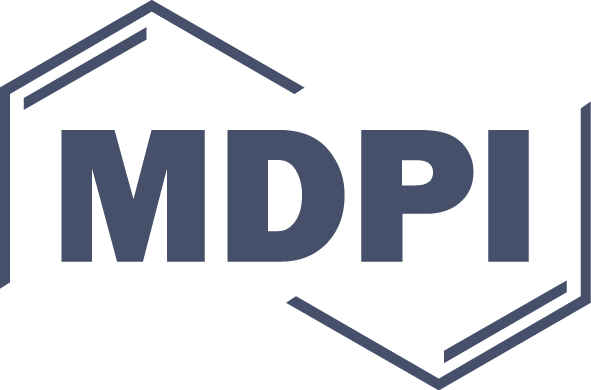 |
 |
Call for Participation
e-conferences, virtually anywhere. 2nd International Electronic Conference on Remote Sensing
The 2nd International Electronic Conference on Remote Sensing will be held from 22 March to 5 April 2018. ECRS-2 aims to promote and advance the exciting and rapidly changing field of remote sensing and contribute towards outlining the role of earth observation in monitoring the environment for a sustainable future. All proceedings will be held online at https://www.sciforum.net/conference/ecrs-2.
The continuous technological advent in the broader field of remote sensing opens new opportunities and challenges, emanating from the current and future deployment of new sensors and products, the enormous volume of data becoming readily and openly available, and the ever increasing need for environmental sustainability, among others. Contributions from both theoretical and applied perspectives of remote sensing will be covered. Some of the main topics of interest are listed below:
- New Platforms and Sensors
- Big Data Handling
- New Image Analysis Approaches
- Applications
- Product Validation
- Operational Applications and Services
- Recent Trends in UAV Remote Sensing
- Posters: In this section, posters can be presented without an accompanying proceedings paper. Posters will be available online on this website during and after the e-conference. However, will not be added to the proceedings of the conference.
The conference will be completely free of charge—both to attend, and for scholars to upload and present their latest work on the conference platform. There will be a possibility to submit selected papers to the e-conference related Special Issue of the journal Remote Sensing (ISSN 2072-4292; 3.244 (2016); 5-Year Impact Factor: 3.749 (2016); https://www.mdpi.com/journal/remotesensing) with a 20% discount on the APCs. ECRS-2 offers you the opportunity to participate in this international, scholarly conference without having the concern or expenditure of travel — all you need is your computer and access to the Internet. We would like to invite you to “attend” this conference by presenting your latest work. You will be able to present your work in the form of your proceedings paper, optionally you may also contribute a (video) presentation.
Abstracts (in English) should be submitted by 17 December 2016 online at https://www.sciforum.net/login. For accepted abstracts, the proceedings paper can be submitted by 10 February 2018. The conference itself will be held 22 March-5 April 2018.
We hope you will be able to join this exciting event and support us in making it a success. ECRS 2018 is organized and sponsored by MDPI, a scholarly open access publisher based in Basel, Switzerland.
Time Schedule
- Deadline for Abstract Submission: 17 December 2017
- Notification of Acceptance: 20 December 2017
- Deadline for Submission of Conference Proceedings Papers/Posters: 10 February 2018
- Conference Open: 22 March to 5 April 2018
Paper Submission Guidelines
For information about the procedure for submission, peer-review, revision and acceptance of conference proceedings papers, please refer to the section "Instructions for Authors": https://sciforum.net/conference/ecrs-2/page/instructions.
Sponsors
 |
 |
Partners
HAPTIC R&D CONSULTING is a consulting of global technology and engineering company providing innovative solutions for customers in industrial, commercial, and residential markets. Our goal is your target in a future visionary way to create a synergy business bridge between SME’s companies and R&D laboratories to merge together in revolutionary and innovation projects.
HAPTIC R&D CONSULTING stays focused both on private and public organisations, NGOs, universities, educational institutes and agencies offering various services related to European funded programmes such as Horizon 2020 helping them to access EU funds.
For more info please visit our website www.haptic.ro or contact us: info@haptic.ro

The International Conference on Geographical Information Systems Theory, Applications and Management aims at creating a meeting point of researchers and practitioners that address new challenges in geo-spatial data sensing, observation, representation, processing, visualization, sharing and managing, in all aspects concerning both information communication and technologies (ICT) as well as management information systems and knowledge-based systems. The conference welcomes original papers of either practical or theoretical nature, presenting research or applications, of specialized or interdisciplinary nature, addressing any aspect of geographic information systems and technologies.
Website: http://www.gistam.org
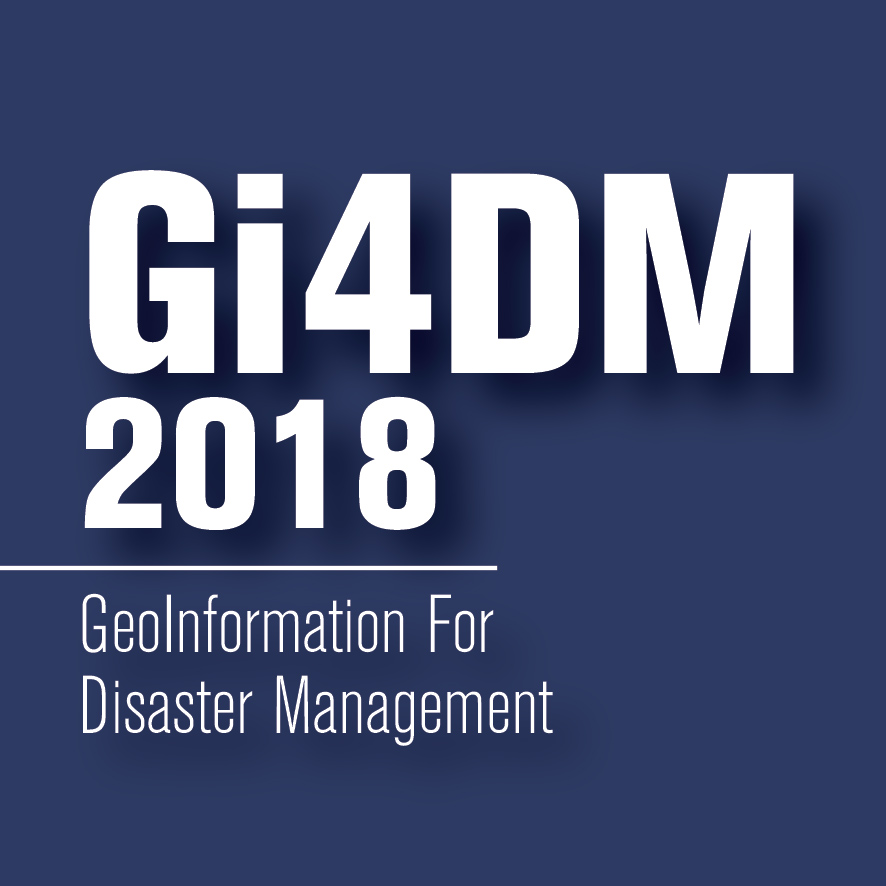 |
|
We are pleased to invite you to submit an abstract and in case of acceptance your paper to this conference. All accepted papers will be published in ISPRS Archives. The ISPRS Archives are listed in the ISI Conference Proceedings Citation Index (CPCI) of the Web of Science, SCOPUS, and the Directory of Open Access Journals (DOAJ). Please note that your manuscript needs to follow the official ISPRS publication guidelines: https://www.isprs.org/documents/orangebook/app5.aspx Another possibility for your papers to be presented at Gi4DM is that authors can publish their papers at the ISPRS Journal of Geo-Information which is an open access journal with an Impact Factor of 1.502 (2016). Instructions for authors are as follows: ************************************************* 1. Please provide a cover-letter to indicate it was a contribution from Gi4DM 2018. 2. Conference papers should be expanded to the size of a research article by adding at least 50% new materials. 3. Editorial Procedures including following parts: pre-check, peer review, revision, decision and publication (rejection). 4. The publishing fees of IJGI will be 1000CHF from 1 January 2018. ************************************************* More detailed information can be found on the journal's website: https://www.mdpi.com/journal/ijgi We invite all scientists, practitioners and decision makers to join the conference by sharing their experiences by presenting papers and participating to the discussions afterwards… |
 Data (ISSN 2306-5729) is an open access journal on data in science, with the aim of enhancing data transparency and reusability. The journal publishes in two sections: a section on the collection, treatment and analysis methods of data in science; a section publishing descriptions of scientific and scholarly datasets (one dataset per paper). There is no Article Processing Charges (APCs) for well-prepared manuscripts submitted in 2018 and a first decision is provided to authors approximately 20.5 days after submission; acceptance to publication is undertaken in 5.6 days (median values for papers published in this journal in 2017). The journal is indexed in the Emerging Sources Citation Index (ESCI) - Web of Science.
Data (ISSN 2306-5729) is an open access journal on data in science, with the aim of enhancing data transparency and reusability. The journal publishes in two sections: a section on the collection, treatment and analysis methods of data in science; a section publishing descriptions of scientific and scholarly datasets (one dataset per paper). There is no Article Processing Charges (APCs) for well-prepared manuscripts submitted in 2018 and a first decision is provided to authors approximately 20.5 days after submission; acceptance to publication is undertaken in 5.6 days (median values for papers published in this journal in 2017). The journal is indexed in the Emerging Sources Citation Index (ESCI) - Web of Science.
GeoConnexion International is the leading business-to-business monthly for users of spatial professionals across the globe. It covers applications of GIS, GPS and remote sensing within industry sectors, such as telecoms, emergency services, public safety, government, utilities and retailing.
Subscribe to GeoConnexion magazines: Join Now
View the magazines and Sign Up for free GeoConnexion Newsletter: GeoConnexion.com
RUS environment demo: Mapping waterbodies from space
In this webinar, you will learn about basic methods of mapping waterbodies from space using Sentinel-1 SAR and Sentinel-2 Optical data. We will show you how to access the RUS Service and how to download, process, analyse and visualise the free data acquired by the Copernicus satellites using ESA SNAP Toolboxes.
The ability to accurately map water surfaces is integral to many hydrological scientific and civil applications. Various methods exist and are used on operational basis. In this webinar, we will have a look at the basic methods applied to two types of EO data, Optical and SAR, and we will explore the advantages and disadvantages of each type.
Audience: this webinar is addressed to users at all levels of knowledge, who have an interest in the topic.
Date and Time: Tuesday 3 April at 14.30 CEST
Duration: 1 hour + 20 minutes for Questions & Answers session
Webinar registration: https://attendee.gotowebinar.com/register/562875575990512642
Keynote Speaker

Barbara J. Ryan is Secretariat Director of the intergovernmental Group on Earth Observations (GEO) located in Geneva, Switzerland. In this capacity, she leads the Secretariat in coordinating the activities of 104 Member States and the European Commission and 114 Participating Organizations that are integrating Earth observations so that informed decisions can be made across eight Societal Benefit Areas: Biodiversity and Ecosystem Sustainability; Disaster Resilience; Energy and Mineral Resources Management; Food Security; Infrastructure and Transportation Management; Public Health Surveillance; Sustainable Urban Development; Water Resources Management.
Before becoming GEO Director in July 2012, Ryan served as Director of the World Meteorological Organization (WMO) Space Programme with responsibility for coordinating space-based observations to meet the needs of WMO Members in the topical areas of weather, water, climate and related natural disasters.
Before joining WMO in October 2008, she was the Associate Director for Geography at the U.S. Geological Survey (USGS) in Reston, Virginia where she was responsible for the Landsat, remote sensing, geography and civilian mapping programs of the agency. It was under her leadership that implementation of the Landsat data policy was reformed to release all data over the internet at no additional cost to the user—an action that has resulted in the global release of more than 42 million Landsat scenes to date, and significant economic returns globally.
Ryan holds a Bachelor´s degree in Geology from the State University of New York at Cortland, a Master´s degree in Geography from the University of Denver, and a Master´s degree in Civil Engineering from Stanford University. She has been awarded an honorary doctorate of science degree from the State University of New York at Cortland. She was recently named an Honorary Fellow of the American Geographical Society, and in January 2017, was one of 10 global Leaders to be named to the Geospatial World Forum’s Hall of Fame.
Barbara J. Ryan
Secretariat Director
GEO Secretariat
7bis, avenue de la Paix – Case postale 2300
CH-1211 Geneva 2 – Switzerland
A. New Platforms and Sensors
Dear Colleagues,
The “New Platforms and Sensors” session will focus on the innovative orbital, airborne or marine platforms equipped with new and integrated sensor systems that are planned or soon to be operational. With the proliferation of Remotely Piloted Systems (RPAS/UAS/UAV/ drones, AUV), the remote sensing community is seeing an explosion of interest in data collection from these platforms. We encourage contributions that cover this exciting new platform development arena, as well as innovative integrated sensor systems to accompany those platforms. Innovative remote sensing applications which demonstrate the impacts of new platforms and sensors are also encouraged. Additionally, we invite contributions that highlight the newly operational employment of orbital satellite sensor systems at all spatial scales. Many nations and organizations are launching and operating new Earth monitoring systems, and are looking to expand the visibility of those systems for use by the community. The orbital Earth Observation (EO) realm is also being opened up to commercial enterprises, and is no longer just a domain for space organizations. With the development of SmallSats, MicroSats, and even larger platforms by the commercial community, we see a concomitant increase in interest to use these sensor system data sets for supporting a wide range of Earth system studies. We welcome your input to this broad-based session that will hopefully expose the community to the new innovative platforms and Earth Observation sensors that will evolve in the near future.
Best regards,
Mr. Vincent Ambrosia
Prof. Alexander Braun
Section Chairs
|
Adjunct Professor Vincent Ambrosia Senior Research Scientist / Adjunct FacultyCalifornia State University - Monterey Bay co-located at: NASA-Ames Research Center MS 245-4, Bld. 245, Rm. 128, P.O. Box 1 Moffett Field, California, 94035 USA |
|
Department of Geological Sciences and Geological Engineering |
Keywords:
- UAV/UAS/RPAS/drones, AUV
- long-duration LTA platforms
- hyperspectral
- electro-optical
- thermal
- LiDAR, SAR, sonar
- future missions and innovative measurement platforms
Session Chairs
Professor Alexander Braun, Queen's University
Mr. Vincent Ambrosia, CSUMB / NASA-Ames
B. Big Data Handling
Dear Colleagues,
This session on Big Data Handling is intended to collate papers on the latest techniques to manage, exploit, process, and analyze big data in remote sensing applications. The session is expected to bring together experts from different research areas to discover and realize the values of big data in various remote sensing areas. As a result, different techniques and applications exploiting big data will be gathered as a first necessary effort towards the incorporation of this technology into the remote sensing field, and also help academia, governments, and industries to gain insights into the potential of using big data techniques and concepts in remote sensing applications.
Best regards,
Prof. Mingmin Chi
Prof. Jón Atli Benediktsson
Prof. Mihai Datcu
Section Chairs
|
School of Computer Science, Fudan University 314-2 Computer Building, 825 Zhang Heng Road Shanghai 201203, China |
|
Faculty of Electrical and Computer Engineering |
|
German Aerospace Center (DLR) |
Keywords:
- Remote Sensing
- Radar/Lidar/Microwave
- Multispectral/Hyperspectral
- High/Very-High Resolution
- Spatial data
- Social media data
- Big data applications
- Big data analytical techniques
- Big data collection
- Big data (content-based image) retrieval
- Big data evaluation standards
- Big data storage
- Big data visualization
- Cloud computing
- High performance computing
- Supercomputing
Session Chairs
Dr. Mingmin Chi
Dr. Jón Atli Benediktsson
Dr. Mihai Datcu
C. New Image Analysis Approaches
Dear Colleagues,
Large-scale image analysis is key to provide rapid insights and information in the world of big data and real-time intelligence and decision making. Image analysis comes in different forms and there has been extensive research on operational and research algorithms suited for a variety of applications—ranging from airborne surveillance to remote sensing and video analytics from space, to name but a few. New image analysis methodologies can be submitted to this forum and may include advances in new algorithms for pattern recognition, feature enhancement, compression, computer vision innovations, including new scalable deep learning and machine vision algorithms, image fusion, image super-resolution, and topics that may include existing image analysis approaches for specific applications, highlighting computational complexity, inter-comparison of methods, sensor limitations and future challenges.
Best regards,
Dr. Sangram Ganguly
Dr. Yuliya Tarabalka
Section Chairs
|
INRIA Sophia Antipolis |
|
NASA Ames Research Center |
Session Chairs
Dr. Yuliya Tarabalka
Dr. Sangram Ganguly
D. Applications
Dear Colleagues,
The “Applications” session will focus on the specifics of remote sensing data usage in agriculture, forestry, meteorology, hydrography, land use planning, natural and anthropogenic disasters, change analysis and relevant research topics which are not limited to this list. We encourage contributions that cover examples of different remote sensing data (satellite based, air born, UAV) application in practice. Additionally, we invite contributions that highlight methodological aspects of remote sensing data usage at different spatial scales for mapping, monitoring, and evaluation of natural resources, including multi-sensor applications. We hope that, as a result of the work of our section, new promising tasks of the practical application of remote sensing data will be revealed. In addition, the effectiveness of remote sensing methods and approaches will be demonstrated, and confirmed.
Best regards,
Dr. Igor Savin
Prof. Mario Caetano
Section Chairs
|
V.V. Dokuchaev Soil Science Institute, |
|
NOVA Information and Management School (IMS),
Universidade Nova de Lisboa and Directorate-General for Territory (DGT) |
Keywords:
- Land cover mapping
- Land cover monitoring
- Land use mapping
- Land use monitoring
- Land evaluation
- Land use planning
- Natural and anthropogenic disasters monitoring, and risk assessment
Session Chairs
Dr. Mario Caetano
Dr. Igor Savin
E. Product Validation
Dear Colleagues,
Validation of remote sensing products is fundamental for Earth Observation. The “Product Validation” session will focus on methods used to derive information on the spatial and thematic quality of remote sensing products at all scales. The current proliferation of satellites and sensors providing global imagery at different spatial resolutions has necessitated provision of a variety of remote sensing products that support the monitoring of events and processes on Earth. However, this profusion of new products is often not accompanied by protocols that help determine the quality of the products. Research is needed to establish protocols for product validation that can help users determine their applicability for Earth resource monitoring. This session welcomes submissions of work on the applicability of Earth Observation data for environmental monitoring with an emphasis on quality assurance and quality control of the resulting products.
Best regards,
Dr. Jesus San Miguel
Prof. Jing M. Chen
Section Chairs
|
University of Toronto, Toronto, Canada |
|
European Commission
Rue du Champ de Mars 21
1050 Brussels
Belgium
|
Session Chairs
Dr. Jesus San Miguel
Professor Jing Chen
F. Operational Applications and Services
The main areas of interest of this section are: land, maritime, atmospheric, natural and anthropogenic disasters, change analysis, forest sustainability, food security/global crop monitoring, soil surface and subsurface applications and relevant research topics which are not limited to this list.
Section Chair
|
Edinburgh Earth Observatory |
Session Chairs
Dr. Iain Woodhouse, The University of Edinburgh
Professor Daniele Riccio
G. Recent Trends in UAV Remote Sensing
Dear Colleagues,
In recent years, UAVs have undergone significant advances in equipment capabilities and now have the capacity to acquire high resolution imagery from many angles in a cost effective, efficient manner. UAVs are used in diverse remote sensing applications such as Earth observation, precision farming, cultural heritage monitoring, urban monitoring, forest management, fire monitoring, disaster prevention, search and rescue, security, mapping and monitoring of desertification industrial plant inspection, 3D mapping, and environmental studies and monitoring. With recent advances in technology, UAVs are also able to include new sensors, such as multispectral, hyperspectral, infrared and thermal cameras, lidar and other sensors.
Best regards,
Dr. Kyriacos Themistocleous
Section Chair
|
Department of Civil Engineering and Geomatics |
Session Chairs
Dr. Kyriacos Themistocleous
Dr. Norman Kerle
Dr. Francesco Nex, University of Twente - ITC Faculty
H. Posters
In this section, posters can be presented without an accompanying proceedings paper. Posters will be available online on this website during and after the e-conference. However, will not be added to the proceedings of the conference.
Session Chairs
Professor Ioannis Gitas
Dr. Chandra Giri
Dr. Kevin Tansey, University of Leicester
Dr. Gui-Song Xia
Show all published submissions (2) Hide published submissions (2)
Submissions
List of Papers (2) Toggle list








